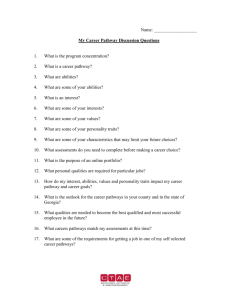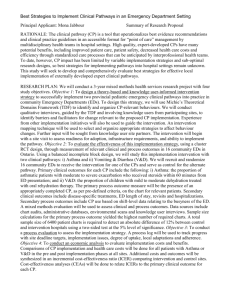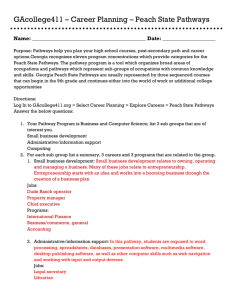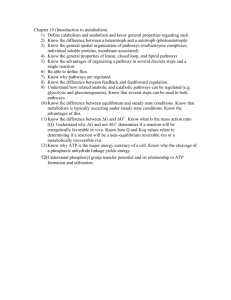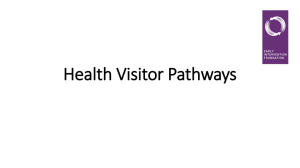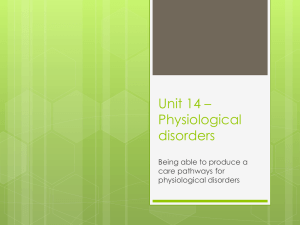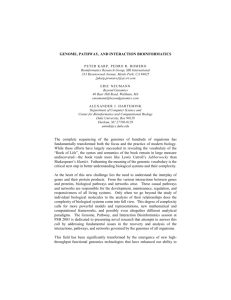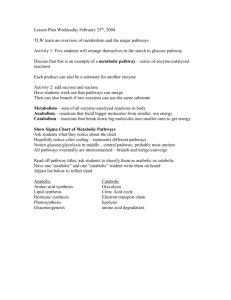Alcohol Treatment Integrated Care Pathway Mapping Workshop
advertisement
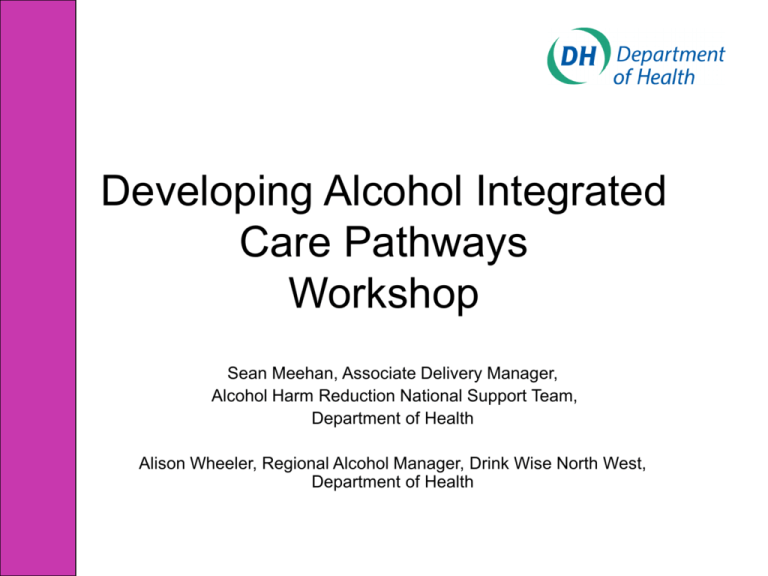
Developing Alcohol Integrated Care Pathways Workshop Sean Meehan, Associate Delivery Manager, Alcohol Harm Reduction National Support Team, Department of Health Alison Wheeler, Regional Alcohol Manager, Drink Wise North West, Department of Health Aim and Objectives • To develop an understanding of alcohol treatment pathway work as one of the ways to improve the effectiveness and capacity of local treatment systems – Understand the national context and guidance – Understand the value of pathway work – Understand how to implement a typical pathway improvement process – Understand some useful techniques and ‘top tips’ – Gain insight into the learning from a regional approach High Impact Changes MoCAM Guidance on Integrated Care Pathways (DH, 2005) • Commissioners should ensure that each alcohol treatment intervention has an Integrated Care Pathway (ICP), which should be agreed with and between local providers, and built into service specifications and service level agreements. Integrated care pathways should contain the following elements: – – – – – – – – – – – – – A definition of the treatment interventions provided Aims and objectives of the treatment interventions A definition of the client group served Eligibility criteria (including priority groups) Exclusion criteria or contraindications A referral pathway Screening and assessment processes Development of agreed treatment goals A description of the treatment process or phases Co-ordination of care Departure planning, aftercare and support Onward referral pathways The range of services with which the interventions interface Further guidance expected from DH via Alcohol Learning Centre website What can we expect from DH guidance? • Guidance on why, who, how and what • Useful checklists • Examples of alcohol treatment pathways • Alcohol pathways to consider Emerging issues from NST visits • Most areas are wanting support with pathway development • Re-designing the treatment system and tendering are common in many areas • Some areas have pathways in place but these do not reflect a whole system approach • General lack of confidence in how to implement a pathways project plan • Commissioners are sometimes not in the driving seat • Some areas have advanced work programmes Why Develop Integrated care Pathways? Integrated care pathways should provide access to a range of services and interventions that meet an individual’s needs in a comprehensive way and should be developed because: • Alcohol users can have multiple problems that require effective co-ordination and treatment • Several specialist and generic service providers may be involved in the care of a service user simultaneously or consecutively • Continuing and evolving care needs requiring referral to services at different tier levels • To provide consistency and parity of approach • To ensure access to care is not based solely on individual clinical decisions or historical arrangements • Common language What is Process Mapping? Process Mapping is a method for defining: • The sequence of steps and activities to be performed along the Integrated Care Pathway • Service responsibilities for these steps and activities • Areas that lie outside the process but impact upon it • The relationship that exists between the different professionals in the process and the potential problem areas • Identifies blocks to access, throughput and transitional fallouts Top Tips on Developing Integrated Care Pathways and Process Mapping • • • • • • • • • • • • • Decide on project manager/lead Decide on milestones Standardise - decide on format, schematic, narrative, colours, essential elements Develop in partnership Reflect the service user experience Process is as important as the finished product Pathway for each intervention Evidence based Consultation Process map – integrate with data and capacity Develop a common assessment and care planning process with common documentation to avoid duplication Re-design Publish Example of a Mapping Template Service Name Tier of Intervention (Please Tick) Intervention 1 2 3 4 Integrated Care Pathway in place? Yes / No Target User Group (please tick) Increasing Risk Higher Risk Dependant Partners Treatment Model Example LES GP Audit Score Assessment Brief Advic e <16 Back to Tier 2 >16 GP Tier 2 Arrest Referral Assessment Detox Required? Suitable for counselling? Yes No Refer to GI Consultant Yes Self Tier 3 Provide Counsellin g Hospital (Wards and A & E) Assessment No No Liaise with Case Manager? In hospital detox Care Plan, Liaise with GP / Psychiatrist for medically assisted detox Discharge to GP OR Successful? No Yes A Typical ATP Learning from Drink Wise North West Pathways Event Outcome from the event to be delivered by sub regions, supported by DWNW:• Validation of pathways • Building an effective outcomes framework Regional development and support:• Homelessness pathways • Dual Diagnosis pathways • Building the business case for investment Discussion • What action are you taking/plan to take to develop alcohol pathways? • What challenges are you facing? • Identify how you plan to take this work forward?
